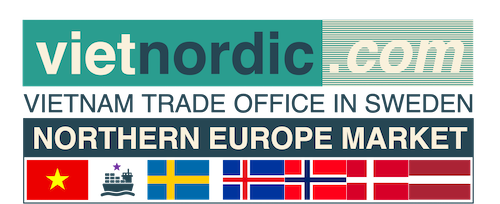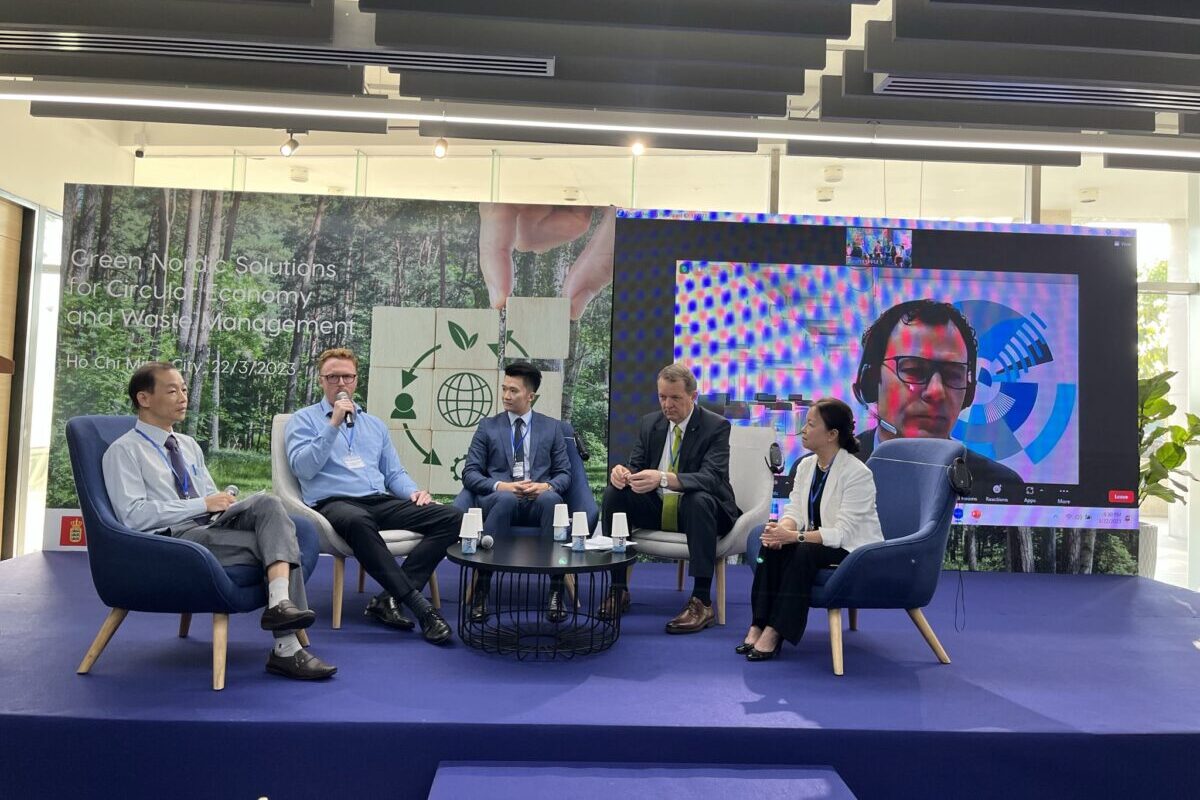Nordic countries, including Denmark, Finland, Norway, and Sweden, shared their experience in green solutions to a circular economy and waste management and policy implications for Vietnam at a seminar held in Ho Chi Minh City on Wednesday.
The seminar was organized by the Embassies in Vietnam of Denmark, Finland, Norway, and Sweden and Fulbright University Vietnam to mark the occasion of Nordic Day 2023 (March 23).
In his opening remarks at the seminar, Ambassador of Denmark to Vietnam Nicolai Prytz said with a long tradition of working together to find solutions to common challenges, the Nordic countries are proud to share their experience and knowledge with Vietnam.
“We believe that sharing experience and best practices with our partners is essential to promoting sustainable development,” Prytz added.
Meanwhile, Ambassador of Norway to Vietnam Hilde Solbakken highlighted the role of the private sector in promoting green innovation, saying, “In the Nordic region, we have seen how private sector-driven innovation can lead to significant improvements in waste management and reduction of plastic pollution.
“We believe that when governments create the right incentives and regulations, we can unleash the potential of the private sector to drive green transition.”
At the seminar, representatives of the Nordic region shared policies and initiatives to promote sustainable development.
In particular, Denmark has implemented a green transition strategy, which focuses on reducing greenhouse gas emissions by 70 percent in 2030 compared to 1990 levels and toward net zero by 2050.
Tim Forslund, a circular economy specialist from the Finnish Innovation Fund Sitra, said that Finland is the first country in the world to activate a national road map to a circular economy between 2016 and 2025, which aims to reduce waste generation and promote the reuse of materials.
It also includes circular economy knowledge in all levels of education by offering study materials and courses and providing companies with playbooks for applying circular business models, Forslund added.
Meanwhile, Norway is launching the Green Industrial Initiative to accelerate the transition, create jobs, increase exports, and cut greenhouse gas emissions.
As a speaker at the seminar, Dr Kåre Helge Karstensen, chief scientist at Norway’s Foundation for Industrial and Scientific Research, stated that Norway funded the ‘Ocean Plastic Turned into an Opportunity in Circular Economy’ project, which aims to investigate if and how the cement sector can be involved and increase the treatment capacity for non-recyclable plastic wastes in China, India, Myanmar, Thailand, and Vietnam and thereby contribute to reducing the release of micro-plastics to the ocean.
Furthermore, Sweden has set ambitious goals for sustainability, including going fossil fuel-free and 100 percent renewable energy by 2045.
Vietnam itself also set ambitious climate targets.
Vietnamese Prime Minister Pham Minh Chinh made a commitment on achieving net-zero emissions by 2050 at the 2021 United Nations Climate Change Conference (COP26), following an agreement with the G7++ on a Just Energy Transition Partnership in December 2022.
In addition, with the green growth strategy untill 2030 with a vision to 2045, Vietnam expects to achieve a green and sustainable economy by promoting green technologies, improving energy efficiency, and reducing greenhouse gas emissions.
The strategy also focuses on waste management and reducing plastic pollution.
The Nordic region, consisting of Denmark, Finland, Norway, Sweden, and Iceland as well as The Faroe Islands, Greenland and Åland, is known for its commitment to the environment and circularity.

